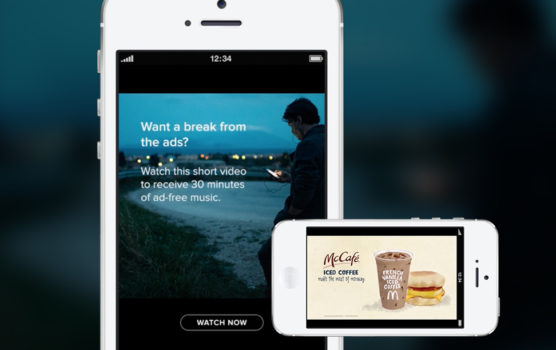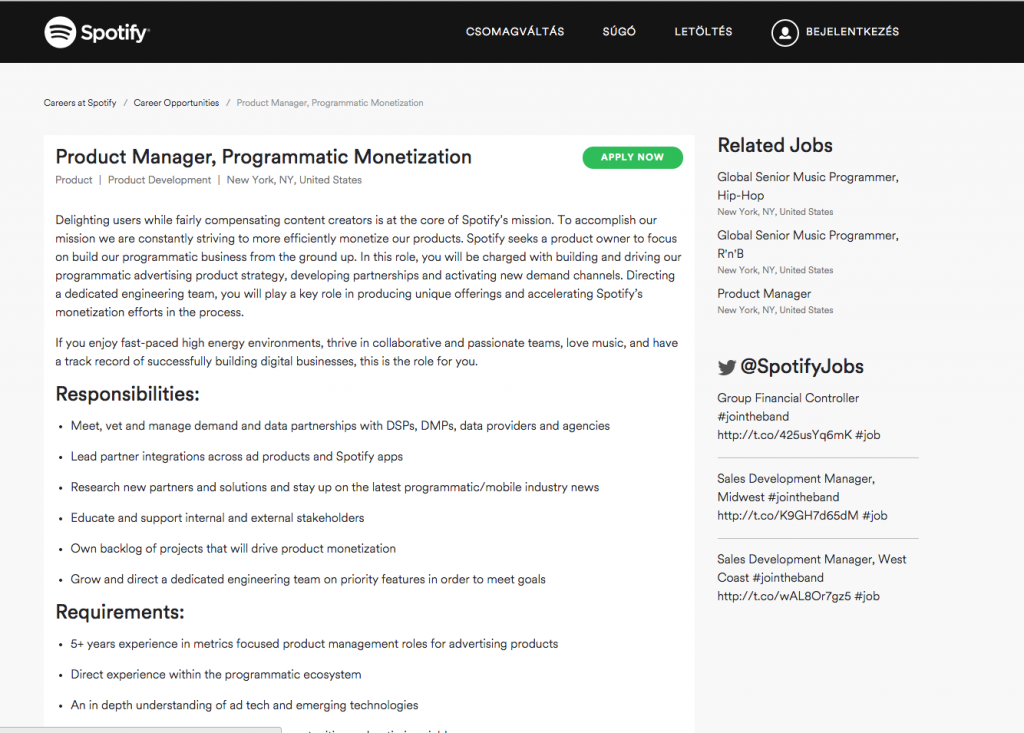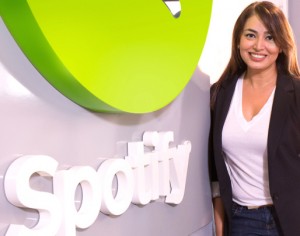Spotify Not Singing Programmatic Tune, Yet

Spotify says it currently has no plans to support programmatic buying, but a recent recruitment ad for its New York office suggests it may be changing its mind pretty soon.
In an interview with ExchangeWire at the sidelines of the recent Festival of Media event in Singapore, Sunita Kaur, Spotify's Asia managing director, said the company was constantly thinking about programmatic, but noted that the time was not right for it to adopt the model. "We don't need it yet, but we will eventually," she said.
Her words echoed that of the company's chief marketing solutions officer, Jeff Levick, who said in a 2012 interview with AdExchanger that the company did not feel it essential to include RTB as part of its growth strategy. "Understanding data and the value of data for greater targeting relevance is incredibly important to us. That's the effort where we're putting in the most energy," Levick said. "We're making sure we're doing the best job of handling our own targeting and protecting our own data."
Kaur, though, noted that Spotify was looking at programmatic more seriously for the first time this year, before stressing that it was a complex market and the company was "some ways away" from actual deployment.
"We haven't quite got there yet. Spotify has got an amazing array of choices in terms of the kinds of ad experiences [consumers and marketers] want, so at the moment we're not venturing into programmatic," she added.

Spotify's recent recruitment ad for a programmatic product manager.
However, ExchangeWire last week spotted a recruitment ad for a "Product Manager, Programmatic Monetization" to be based in Spotify's New York office. In its job description, the company said this position would focus on "building our programmatic business from the ground up".
"In this role, you will be charged with building and driving our programmatic advertising product strategy, developing partnerships, and activating new demand channels," it added. "Directing a dedicated engineering team, you will play a key role in producing unique offerings and accelerating Spotify's monetization efforts in the process."
The ad has since been removed from its corporate website. Asked if that meant the position had been filled, a Spotify spokesperson would only say this: "We're not at a stage to talk further about programmatic, but we'll be in touch soon as we have more updates."
Launching video ads in Asia
While it is keeping mum about its programmatic venture, the company is happy to elaborate on the launch of its video ads, which Kaur said was seeing significant market demand.
She added that Spotify will be launching its video ads in Singapore in the second quarter, with other markets in the region to follow throughout the year. It is currently in five countries in Asia, including Hong Kong, Malaysia, and Taiwan.

Sunita Kaur, Spotify's Asia managing director
"It's a new ad unit for us and came off demand from brands," Kaur said. "Video is a big part of brands' strategy and as they spend more time building videos, they want to be able to deliver them across as many platforms as possible."
Spotify's video ads run on desktops and mobile devices, and are delivered as 'sponsored sessions' where users who watch a sponsored video ad will receive 30 minutes of ad-free music on their mobile phone.
Noting that its Singapore users spent an average of 160 minutes a day on Spotify, Kaur said the company focused on building audience engagement because brands valued it. She noted that it had started out offering basic ad units, such as leaderboards and audio ads, before adding more sophisticated buys into the mix. For example, brands can build playlists or create their own soundtracks on Spotify to target specific consumer segments, such as runners. She pointed to Adidas, which hosts a runnners' club on Spotify that features playlists that cater to different running paces.
She added that data was important to further drive audience engagement, and referred to the company's 2014 acquisition of music data platform The Echo Nest, to enhance its targeting capabilities.
AdvertiserAnalyticsAPACBrandingDataMedia SpendMobileProgrammaticSingaporeTargetingVideo








Follow ExchangeWire